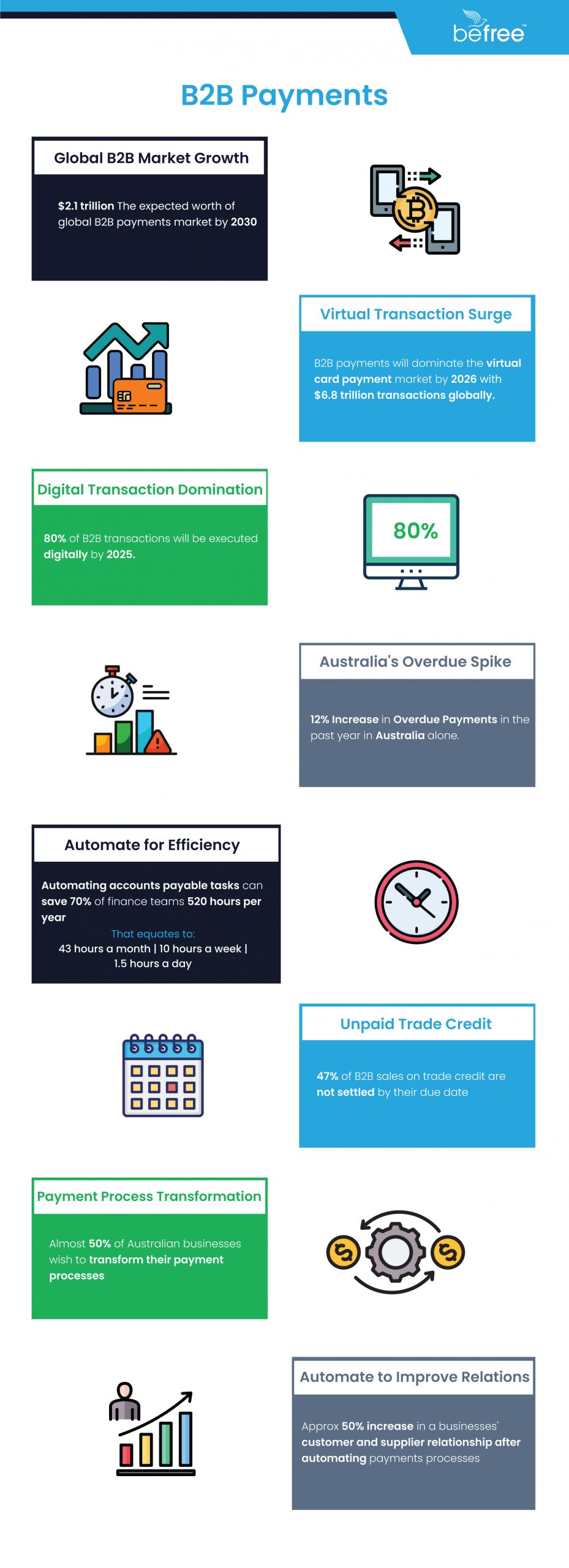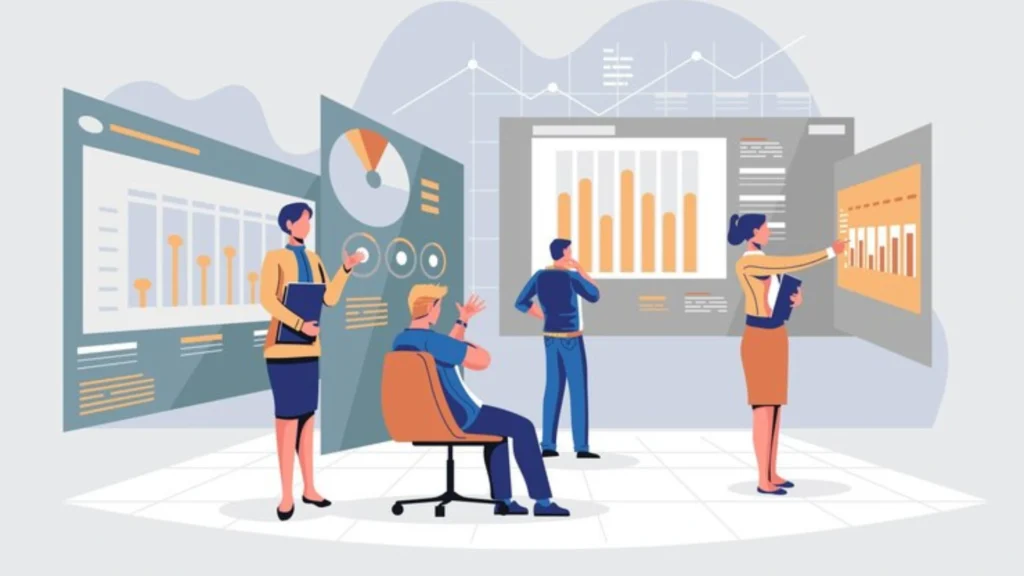In the digitally evolving world of finance and accounting, staying ahead of the curve is not just an option; it is a necessity. When we consider the finance and accounting landscape in 2024 and beyond, B2B payments have undergone a profound transformation, spurred by rapid technological advancements and evolving business needs. Embracing these trends isn’t simply about keeping up with competition, it’s about redefining their roles and processes to stay future-ready.
According to research, 81% of firms still occasionally utilize paper checks for business-to-business payments. Historically, B2B payments have fundamentally involved manual processes, paper invoices, and lengthy payment cycles. However, the digital revolution has redefined processes in terms of efficiency and convenience. Today, businesses have the liberty to access a wide variety of payment methods and platforms to choose from to streamline transactions and improve cash flow management.
The growing adoption of digital wallets and contactless payments has transformed the way businesses send and receive money. From PayPal to Apple Pay, businesses now have access to secure, convenient payment solutions that bypass the need for physical cheques and lengthy bank transfers. Accountants, in this case, have had to transform their role by integrating these payment methods into their existing systems while ensuring compliance with financial regulations.
Blockchain technology and cryptocurrencies such as Bitcoin and Ethereum are transforming the B2B payments landscape, providing greater transparency, security, and efficiency. Smart contracts driven by blockchain technology facilitate automated payments and decrease the risk of fraud and error significantly. Accountants need to stay on top of these developments and further explore how blockchain can be used to optimise financial processes and mitigate risks for their clients.
Artificial intelligence and machine learning algorithms are being increasingly adopted for automating routine accounting tasks like invoice processing and reconciliation. These technologies are capable of analysing vast quantities of data in real time, identifying patterns, and generating insights for better-informed decision-making. Accountants need to embrace AI-powered tools and platforms to improve accuracy, efficiency, and strategic planning in financial management.
Open banking initiatives and application programming interfaces (APIs) have been the driving forces behind greater collaboration and innovation in the financial sector. Through secure data sharing between banks, fintech companies, and other third-party providers, open banking enables faster payments, greater cash flow visibility, and personalised financial services. For accountants, leveraging APIs leads to better integration of disparate financial systems, streamlined data exchange, and offers clients real-time access to financial information.


The advent of these B2B payment trends has created both challenges and opportunities for accountants and finance professionals. Automation and digitization have streamlined repetitive tasks, reduced manual errors, and elevated productivity significantly. However, this has caused accountants to adapt to these new infringing technologies by acquiring new skills and rethink the way they manage traditional processes.
As automation takes charge of managing routine accounting tasks, accountants are freed up to devote their time to higher-value activities, such as financial analysis, forecasting, and strategic planning. Instead of simply crunching numbers, accountants find themselves in the role of strategic advisors, leveraging data-driven insights to identify opportunities for business growth and innovation. This transition towards a more advisory role requires accountants to develop strong analytical and communication skills, on top of gaining an in-depth understanding of their client’s industries and business objectives.
Although these technologies have demonstrated tremendous potential for streamlining compliance processes and enhancing risk management, they also bring to the fore new challenges and complexities. Accountants need to stay vigilant and ensure that B2B payments comply with regulatory and industry standards, especially when it comes to matters relating to data privacy, cybersecurity, and anti-money laundering (AML) regulations. By leveraging AI-powered tools and analytics, accountants can proactively detect and mitigate risks, preventing their client’s financial data from being altered or misused.
We live in an increasingly interconnected business environment where collaboration and integration have emerged as the key drivers of success. Accountants need to work closely with their clients, financial institutions, and technology partners to seamlessly integrate B2B payment solutions into existing systems and workflows. By championing collaboration and knowledge sharing, accountants can leverage the full potential of new emerging technologies to power business innovation and transformation.
Within a rapidly evolving environment, continuous learning and adaptation are vital for accountants to remain competitive. Whether it’s mastering new software tools, deep knowledge of emerging regulatory requirements, or staying up-to-date with technological advancements, accountants need to commit fully to continuous learning and professional development. By maintaining a curious, agile, and proactive approach towards their profession, accountants can prepare and future-proof their careers while delivering maximum value to their clients.
As we progress into 2024 and beyond, the future scope of B2B payments is promising and with unrealized potential. From digital payments and blockchain to AI and open banking, emerging technologies are redefining the way businesses conduct financial transactions, boosting efficiency, security, and convenience. For accountants and finance professionals, adopting these trends has become a necessity for remaining relevant and future-ready in an increasingly digital world.
At befree, we pride ourselves in remaining on top of cutting edge technologies and incorporating them into our services and processes. Whether it’s leveraging automation for ease and speed of traditional processes or introducing new technologies for our clients, our team of highly skilled and experienced professionals are well-equipped to tackle the nuances of digital transformation while ensuring seamless and efficient transitions for our clients to achieve maximum benefits. To know more about our services or to leverage our expert talent to bridge any technological gaps within your business, please visit https://befreeltd.com/au/.




